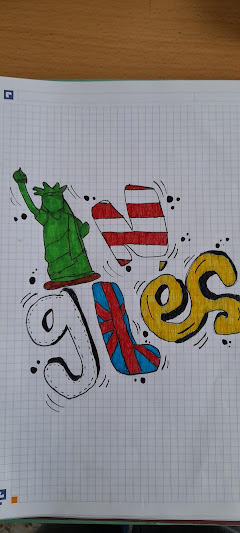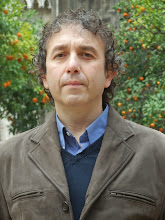RELATIVE
CLAUSES
1) DEFINING or RESTRICTIVE RELATIVE CLAUSES:
They
restrict the meaning of the antecedent, they cannot be deleted, they don't go
between commas and have no pause:
The miners who went on strike will be fired.
(Only those miners who went on strike).
2) NON-DEFINING or AMPLIFYING RELATIVE CLAUSES:
They
add new information to the antecedent, they can be deleted and the meaning of
the main clause remains the same, they go between commas and have a pause:
The miners, who are not well paid, will go on
strike. (All the miners).
A) RELATIVES in DEFINING
RELATIVE CLAUSES:
- AS SUBJECT:
- THAT (personal or non-personal
antecedents): The cars that were parked in the corner exploded
-
WHO (personal antecedents or domestic animals): The man who had a blue jacket
was my father
-
WHICH (non-personal antecedents): I walked into a room which had five windows
- AS OBECT:
-
THAT (personal or non-personal antecedents): The diamond that they stole was
very expensive
-
WHOM (personal antecedents or domestic animals): The man whom they were talking
with was my father
-
WHICH (non-personal antecedents): The notebook which they found was mine
- AS POSSESSIVE:
-
WHOSE (personal or non-personal antecedents): She is the girl whose brother goes
to our school. A word whose spelling is very easy is 'car'
* OMISSION OF RELATIVE PRONOUN:
WHO, WHICH and THAT can be deleted when they
are the OBJECT of the Defining Relative Clause: The diamond (that / which) they
stole was very expensive
* RELATIVE ADVERBS:
- WHERE (place): That was the house where I lived for six
years
- WHEN (time): 1990 was the year when Germany was
reunified
- WHY (reason):
The reason why she left school is unknown
B) RELATIVES in NON-DEFINING
RELATIVE CLAUSES:
* No omission of relative pronoun is
possible here
- AS SUBJECT:
-
WHO (personal antecedents or domestic animals): Hadrian, who was born in
Seville, was a Roman emperor
-
WHICH (non-personal antecedents): That house, which was previously mine, is now
hers
- AS OBECT:
-
WHOM (personal antecedents or domestic animals): Peter, whom you know well,
comes from England
-
WHICH (non-personal antecedents): That table, which she bought yesterday, is
rotten
- AS POSSESSIVE:
-
WHOSE (personal or non-personal antecedents): Peter, whose car was stolen
yesterday, is furious
C) EXTRA:
* RELATIVES IN PREPOSITIONAL CLAUSES
The relative is never deleted and the
preposition will appear before it:
That
house, for which you paid 1 million, is now priced at 2 millions.
* RELATIVE CLAUSES AS NOUN PHRASES
WHAT doesn't have an antecedent. It is an
independent relative. Relative clauses introduced by WHAT can be either the
SUBJECT or the OBJECT of the main clause:
What
you said was not true (SUBJECT)
You
can't always get what you want (OBJECT)
* COMPOUND RELATIVES PRONOUNS
They are independent relatives without
antecedents. They usually have an emphatic value:
WHOEVER / WHOSOEVER (anyone who / everyone who)
Whoever finds it can keep it
We'll find him whosoever he is
WHATEVER / WHATSOEVER (anything that /
everything that)
You can take whatever book you want (ADJ)
Do whatsoever you like
WHICHEVER / WHICHSOEVER (anything which / everything
which)
It will be a failure whichever team wins (ADJ)
Whichsoever of the methods you employ will be a
success
WHENEVER / WHENSOEVER (any time / every time)
I see them whenever they come
WHEREVER / WHERESOEVER (anywhere / everywhere)
I'll find her wherever she is
* If these compounds are used with commands,
the command is made stronger:
Whatever they pay you, do a good job (DO a good
job!!!!)
Whoever you marry, love her more than anything
else (LOVE her!!!!!!!!!)









